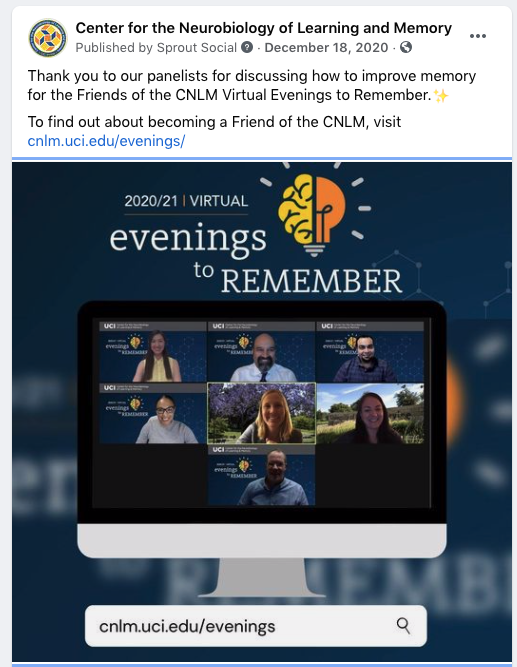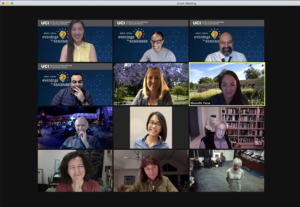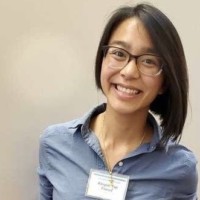From Circuits to Synapses: Panelists Discuss Research into Making Memories Stronger
By Abigail Flores
 The excitement was palpable even across the computer screen as Dr. Michael Yassa, Director of the Center for the Neurobiology of Learning and Memory (CNLM), opened December 2020’s Evening to Remember with warm introductions for the three faculty panelists: Drs. Kevin Beier, Autumn Ivy, and Lulu Chen.
The excitement was palpable even across the computer screen as Dr. Michael Yassa, Director of the Center for the Neurobiology of Learning and Memory (CNLM), opened December 2020’s Evening to Remember with warm introductions for the three faculty panelists: Drs. Kevin Beier, Autumn Ivy, and Lulu Chen.
The Evenings to Remember are special events for the Friends of the CNLM – a community of some of the CNLM’s most avid supporters. Traditionally, the Center hosts an in-person evening featuring a CNLM Fellow. However, due to the COVID-19 pandemic, the CNLM moved the series online. The goal was to re-create virtually the charm of their traditional Evenings to Remember: an intimate atmosphere, exciting new research, and opportunities to dialogue with researchers passionate about their field.
The topic for this evening was “Making memories stronger,” and each of the panelists presented insights from their research and shared personal experiences.
Dr. Kevin Beier ignited the audience’s curiosity by starting the conversation with his analogy of the connections in the brain to an electrical grid. If one component, for example a brain region, isn’t working correctly, it impacts the entire neural system. When Dr. Beier researches treatments for neurological disorders like cocaine addiction, he focuses on mapping out the connections of the neural network in order to pinpoint how each component is affected. While there are fundamental similarities between human brains, each brain consists of unique connections. No one blueprint fits all. Having joined UCI’s faculty two years ago, Dr. Beier has pioneered the use of modified viruses to track these diverse neural blueprints. Modifying viruses can induce different receptors or fluorescent markers in the host cell, and when combined with specific light frequencies (optogenetics) or drugs (chemogenetics), these infected cells could be activated or deactivated. This, said Dr. Beier, allows his lab to visualize the involved neural components and to test their function in the network. Dr. Beier suggested that one way to improve memory may be to add and improve these neural components, but he cautioned that we still do not fully understand how one modification affects the entire grid. Dr. Beier remarked that blood flow and oxygenation – the natural byproducts of exercise – are mechanisms which could influence a single component or entire networks of the brain and invited his colleague Dr. Autumn Ivy to share her insights.
Dr. Autumn Ivy elegantly continued the conversation, by stating that exercise is a gift to your brain that keeps on giving (much to the sheepish grins of some audience members, who like me, have probably neglected exercising during the pandemic). Dr. Ivy then shared how she experienced the cognitive benefits of exercise during her neurology residency at Stanford University. As a member of a competitive Latin dance team, Dr. Ivy noticed how exercise enhanced her memory, work performance, and quality of life. Now as a child neurologist and neuroscientist at UCI, Dr. Ivy investigates how exercise alters development, specifically how exercise impacts molecular and chemical tags on DNA which improve memory. This field of study, known generally as epigenetics, seeks the mechanistic link between experience and gene expression. Many audience members asked Dr. Ivy about what type of exercise would be most effective for memory enhancement. Dr. Ivy replied that acute and chronic exercises which involve the motor (M1) cortex and hippocampus and engage cognitive processes like planning and decision making would be better. Among the multiple systemic and local mechanisms occurring during exercise, Dr. Ivy was particularly interested in neuronal growth and stability (neurotrophic factors) near the synapse and invited her colleague Dr. Lulu Chen to share her insights.

Panelists and community members stayed for an impromptu 'after party' to reconnect and discuss the evening's highlights.
Dr. Lulu Chen, the final panelist of the night, excitedly clarified that the synapse is the junction where two neurons communicate. While it is generally perceived that ‘brain capacity’ is the limiting factor for memory, Dr. Chen stated that synapse function, which is dictated by its shape and embedded receptors, is essential for memory formation. Some audience members asked whether having more synapses would be sufficient to boost memory. Dr. Chen explained with an example: Fragile X syndrome is a neurological disorder characterized by an abnormally high number of synapses. However, individuals with this syndrome exhibit mild to severe intellectual disability, which shows that more synapses don’t necessarily equate to better memory. Dr. Chen’s research focuses on how synapses are formed, strengthened, and modified in order to unravel the biochemical mystery of memory. Although there are still many unknowns in all three panelist’s research programs, Dr. Chen reminded the audience that we still have volitional control of our memories, including choosing how to react to those memories. Dr. Chen shared a personal story about her excitement as a graduate student, transferring from organic chemistry into neuroscience. When she began the program, she had to confront her paralyzing fear of rodents. More than fifteen years of research and hundreds of rodents later, Dr. Chen admits that she still occasionally jumps away when she sees a rodent. However, laughed Dr. Chen, her passion for her research and her knowledge of how memories are encoded, maintained, and retrieved, empowers her to rationally modify her behavior.
This Evening to Remember was concluded with a zoom ‘after party.’ All the audience members, including faculty and Friends of the CNLM, agreed that Dr. Kevin Beier, Dr. Autumn Ivy, and Dr. Lulu Chen led a fascinating conversation which highlighted and complemented each other’s research. Together, these panelists’ research insights and personal accounts from the circuit, genetic, cellular level assisted the entire audience to better understand how UCI’s CNLM is working hard in “Making memories stronger.”

